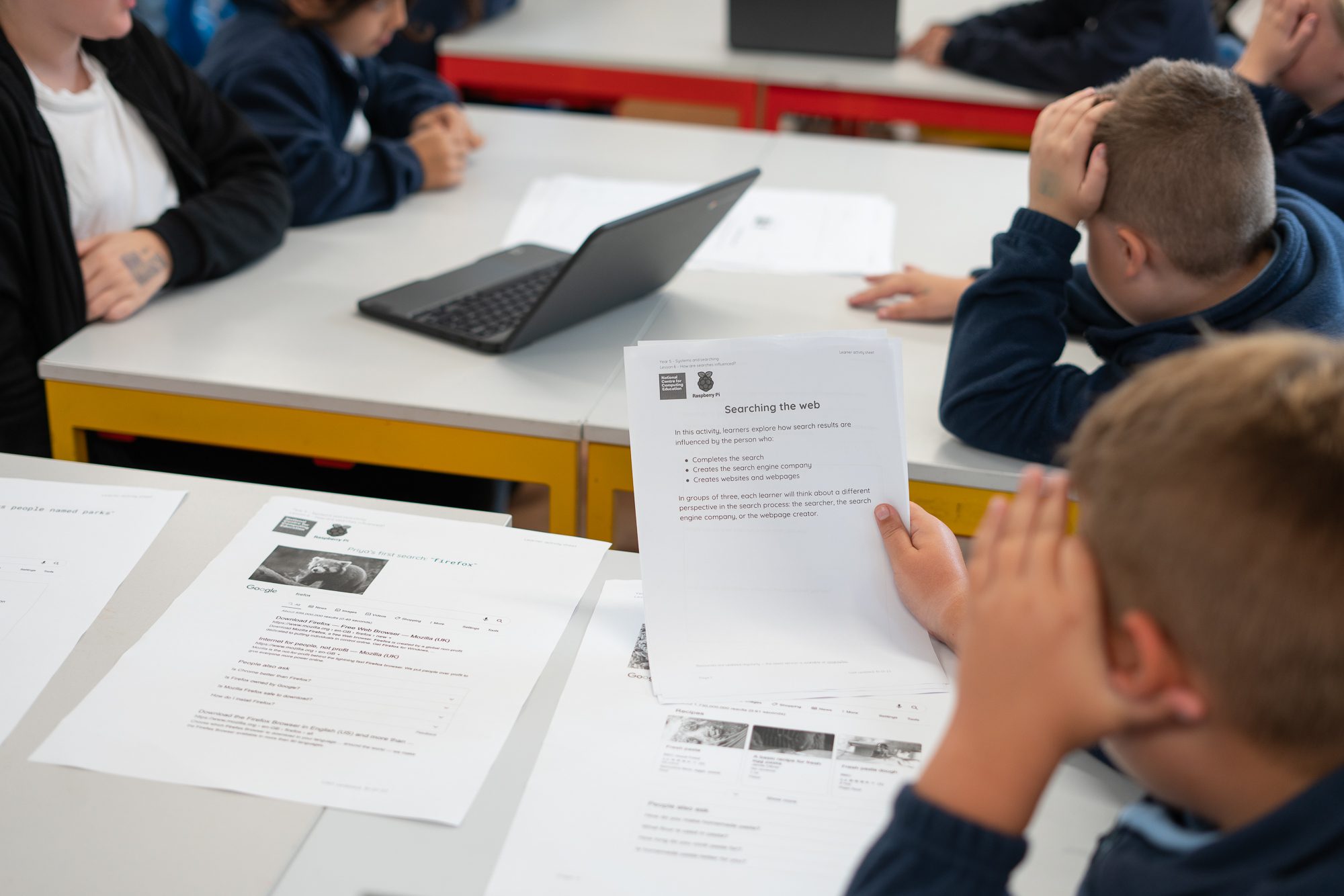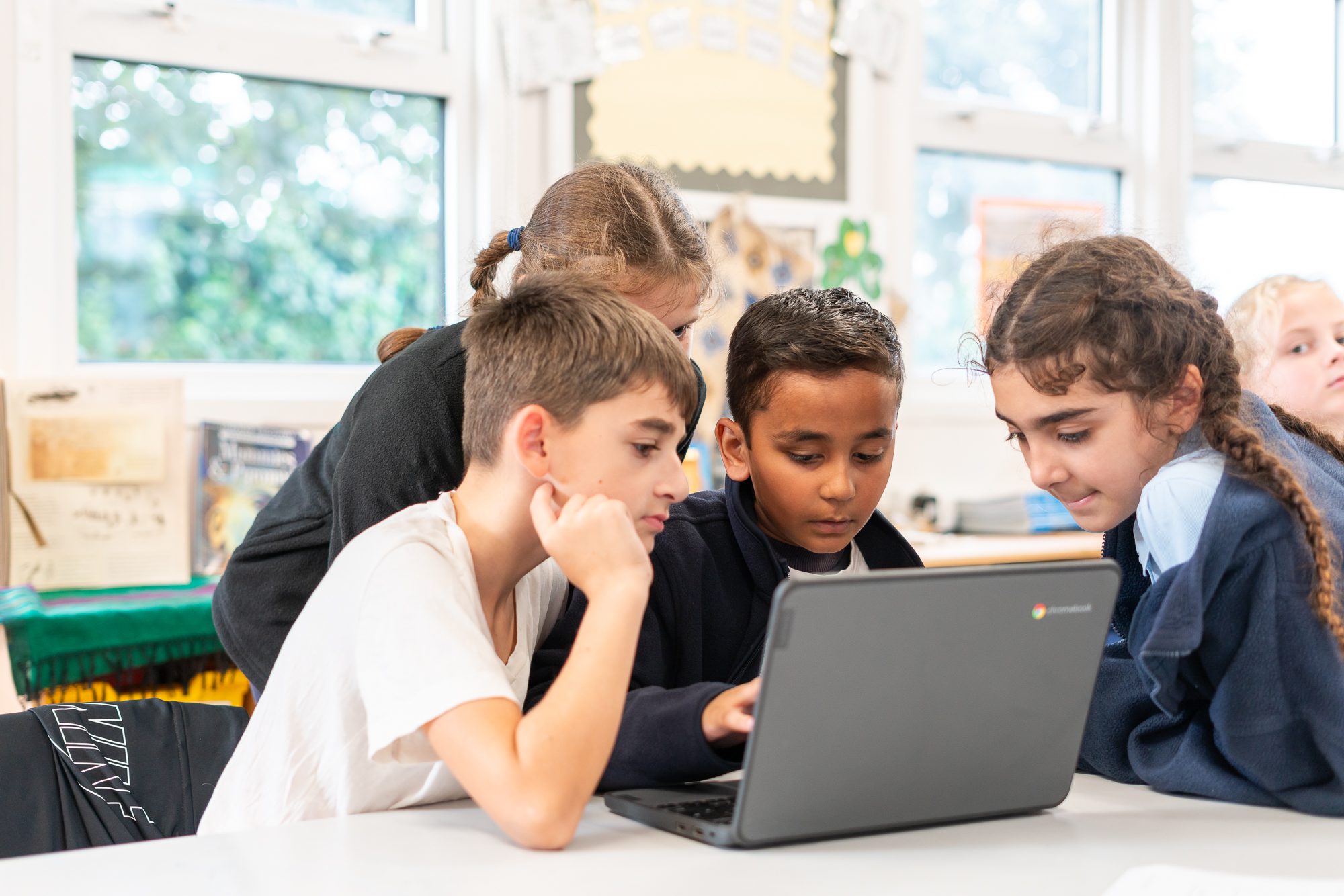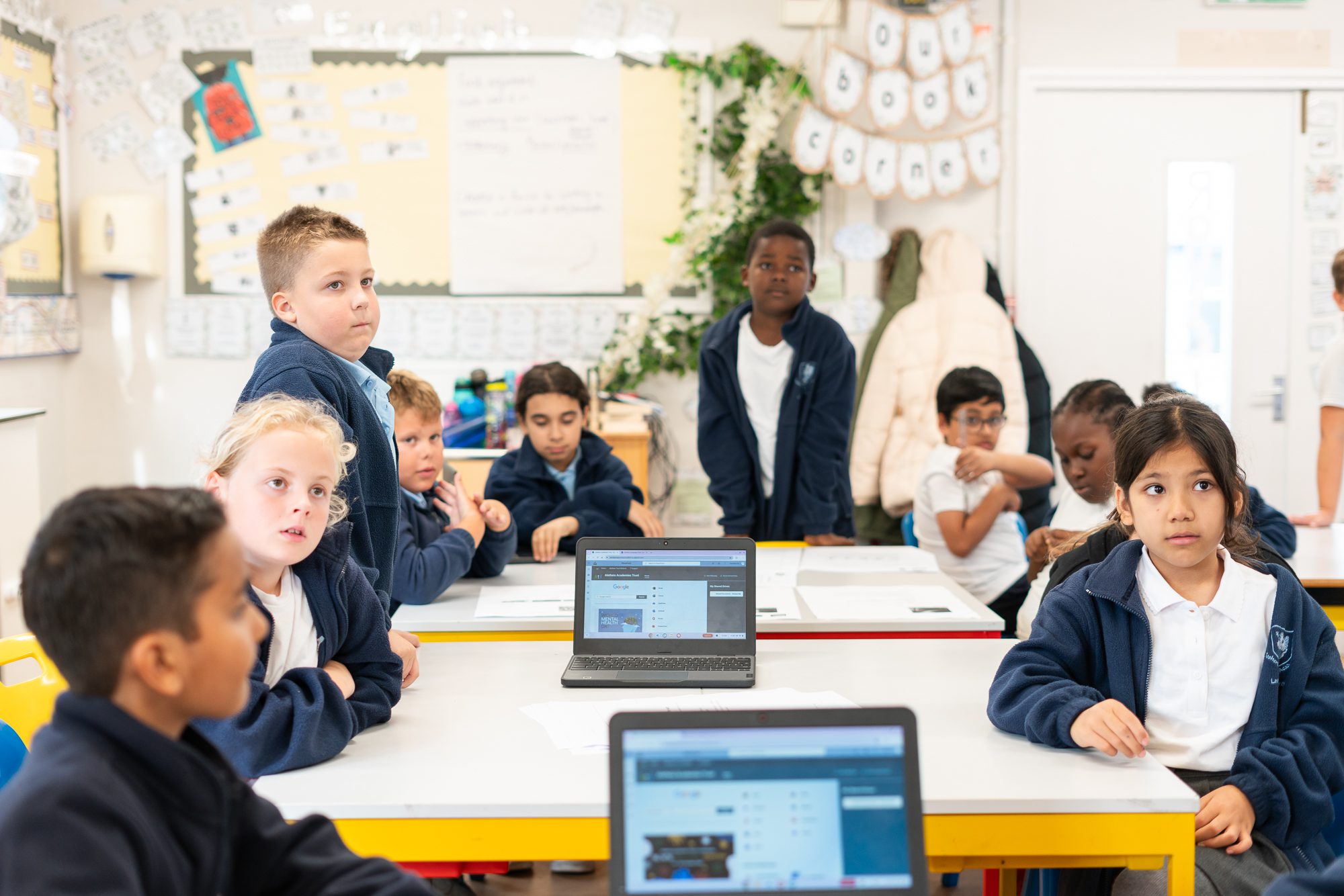Computing Subject Leader: Mr D Easton
Technology is changing the lives of everyone. Through teaching Computing, we aim to equip our children to participate in a rapidly changing world where technology is used frequently in everyday life.
Intent
At Rosherville, we aim to prepare our learners for their future by giving them opportunities through our curriculum themes, to gain knowledge and develop skills that will equip them for an ever-changing digital world. Knowledge and understanding of computing are of increasing importance for children’s future both at home and for employment. Our Computing curriculum focuses on a progression of skills in digital literacy (online safety), computer science and information technology to ensure that children become competent in safely using, as well as understanding, technology.
These strands are revisited repeatedly through a range of opportunities during children’s time in school to ensure the learning is embedded and skills are successfully developed. Our intention is that Computing also supports children’s creativity and cross-curricular learning to engage children and enrich their experiences in school, through Exploration, Global Responsibility, Creativity, Sense of Self, Comparison and Service.


Implementation
We teach the National Curriculum following the Teach Computing scheme, supported by clear skills and knowledge progression. This ensures that skills and knowledge are built on year by year and sequenced appropriately to maximise learning for all children. To ensure a broad range of skills and understanding, Computing is taught across three main strands: digital literacy, computer science and information technology through the Teach Computing curriculum, which is regularly updated. We encourage our pupils to develop their computational thinking and become resilient learners:
- In information technology, children learn to use and express themselves and develop their ideas through ICT for example writing and presenting as well as exploring art and design using multimedia.
- In digital literacy, children develop practical skills in the safe use of ICT and the ability to apply these skills to solving relevant, worthwhile problems for example understanding the safe use of the internet, networks and email. As a school, we will be regularly revisiting e-safety and its importance of it in a recap.
- In Computer Science we teach children to understand and apply the fundamental principles and concepts of computer science, including abstraction, logic, algorithms and data representation. Also, to analyse problems to computational terms, and have repeated practical experience in writing computer programs to solve such problems. We also teach a progression of Computing vocabulary to support children in their understanding.
Impact
Our Computing curriculum will ensure that ALL learners will leave Rosherville as competent and safe users of IT with an understanding of how technology works. Learners will have developed skills that they will be able to use at the next stage of learning and throughout life, have the ability to express themselves and be creative in using digital media and be equipped to apply their skills in Computing to different challenges going forward.

Computing in Each Stage
In EYFS, pupils will learn basic information about computing. Pupils will familiarise themselves with touch screens and computer equipment and will increase their confidence throughout the year in using computers.
In KS1, pupils will adapt their learning from EYFS to use technology to create, organise, store, manipulate and retrieve digital content. Pupils will learn how to create musical compositions using software, edit photos, record a film using the camera app, create spider diagrams and more.
Pupils in KS2 will be able to select, use and combine a variety of software on a range of digital devices to create a range of programs, systems and content. Pupils will be able to accomplish given goals, including collecting, analysing, evaluating and presenting data and information.
Computing Progression
We develop our pupil’s computing understanding through essential skills; growing their depth of knowledge year on year. Through the use of ‘end of year expectations’, we are able to monitor their progress and allocate extra support and adaptations to the curriculum for pupils to maintain a strong computing education.
The computing curriculum is spilt into three categories: Information Technology, Computer Science and Digital Literacy
SEND Information
Learning is adapted where necessary to support SEND/EAL pupils and to challenge more able pupils.
Computing Extra Resources
For more resources about online safety, please visit our resources page here.

